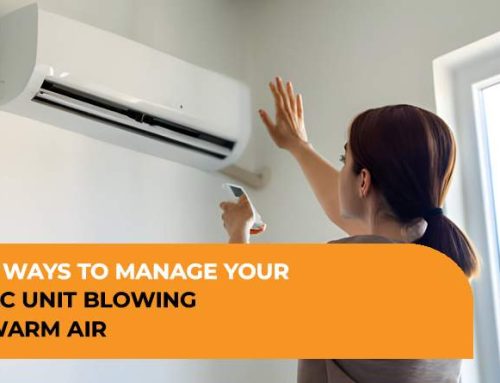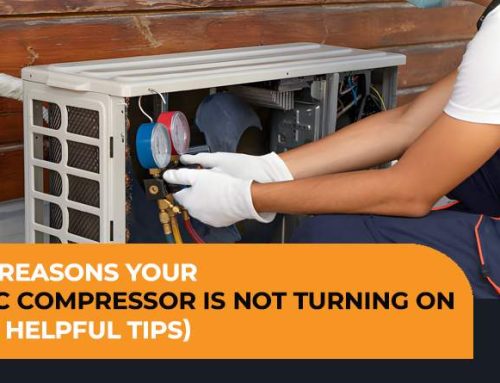Heat pumps vs. air conditioners is a common topic of discussion when searching for low-cost methods to maintain a comfortable home. Both can heat and cool, but choosing the right one for your needs will depend on knowing how they differ.
Come with me as we discuss this and look at solutions for your home.
Air Conditioner Vs Heat Pump
In a study from 2009, it was found that 87% of the homes have air conditioners. Typically, these air conditioners are used together with central heating systems to provide year-round comfort in buildings.
They employ ducts to transfer cool air in the summer and warm air in the winter.
However, these antiquated systems aren’t always the best. They can be significant energy wasters, mainly if they heat with fossil fuels. Central air conditioners are not the most efficient, despite their ability to move cold air.
A better choice would be heat pumps. They heat and cool your house by absorbing heat from the surrounding environment.
If you currently have window air conditioners in your house, switching to a heat pump would be wise. Units with window air conditioning are energy-consuming and noisy. Heat pumps are significantly more efficient at keeping you warm and require much less energy.
Modernizing heating and cooling systems is our area of expertise at The Bee Heat and AC.
We specialize in installing air-source heat pumps because they are considerably superior to traditional HVAC systems.
They even lower your utility costs, depending on where you reside. They work well all year round and allow you to control the temperature in any space.
Before getting into the details, let’s first establish a basic understanding of how each system functions.
How do Air Conditioners Work?
Similar to refrigerators, air conditioners remove heat from inside spaces and release it outdoors during hot weather. During this procedure, air is circulated across a cold coil in the indoor unit, allowing the refrigerant to absorb heat.
As long as the air conditioner is in cooling mode, the heat is sent outside through the compressor and heat exchanger in the outdoor unit, continuing the cycle.
How does a Heat Pump Work?
Heat pumps remove heat from the surrounding air or ground instead of air conditioners.
This heat is absorbed by the refrigerant, which is then circulated through a heat exchanger. Here, the heat is used to warm water for various uses, including hot water tanks, underfloor heating, and radiators.
Heat pumps function as mediators, regulating the hot water, heating, and cooling needs of a house by connecting to various emitters.
Exploring the Pros of Air Conditioner Vs Heat Pump
When thinking about how to keep your home comfortable, it’s essential to understand the advantages of air conditioners and heat pumps. Let’s break down the benefits of each:
Air conditioners are an excellent way to cool your house in hot weather. Here are a few explanations for their popularity:
- Cost-Effectiveness: Air conditioners are frequently less expensive to buy and install than heat pumps. This might make them a more affordable option for people with limited resources.
- Air Quality: Special filters that assist in purifying the air in your home are included with many contemporary air conditioners. They are beneficial to your health since they may get rid of things like dust, pollen, and even some viruses.
- Simplicity: It’s usually not too difficult to install an air conditioner. All you need is an exterior unit, an interior unit, and a remote control to operate it.
In addition to cooling your home, heat pumps may also heat it in the winter.Here’s why they’re a well-liked option:
- Complete Solution: For your house, heat pumps are multipurpose devices. They can provide hot water, cooling, and heating with only one system. When compared to having different systems for every purpose, this can be more space-efficient and convenient.
- Long-term Savings: Even while heat pumps may initially cost more, they can end up saving you money over time. Because of their extreme efficiency, they require less energy than conventional systems to heat or cool your house. This could eventually lead to lower energy bills.
- Future-Proofing: Heat pumps are seen to be a more environmentally friendly option. They employ more environmentally friendly sources of energy, such as ground or air heat. You can rely on them year-round because they are made to function properly in extremely frigid temperatures.
Exploring the Cons of AC Vs Heat Pump
As with any choice, it’s essential to consider the benefits and drawbacks of air conditioners and heat pumps. Let’s take a closer look at the downsides of each:
Air conditioners, while effective at cooling your home, come with their own set of limitations:
- Limited Functionality: Traditional air conditioners are designed solely for cooling purposes. They lack heating capabilities, thus you will want an additional heating system throughout the winter.
- Energy Consumption: Air conditioners can be energy-intensive, especially if they’re older models or used frequently during hot weather. This may result in increased electricity costs, especially in places where temperatures are high.
- Environmental Impact: Refrigerants used in many air conditioners contribute to global warming and ozone depletion. While newer models use more environmentally friendly refrigerants, older units may still threaten the environment if not disposed of properly.
Although heat pumps have many advantages, there are also some disadvantages to take into account:
- Higher Initial Cost: When it comes to initial costs, heat pumps are typically more expensive than conventional air conditioners. This can be a barrier for homeowners on a tight budget, despite the potential long-term savings on energy bills.
- Complexity of Installation: Installing a heat pump can be more complicated than installing an air conditioner, especially if your home doesn’t already have ductwork or if retrofitting is required. This complexity can lead to higher installation costs and longer project timelines.
Making the Final Decision
The decision between a heat pump and an air conditioner ultimately boils down to your preferences and demands.
When choosing a product, consider installation complexity, overall suitability, and long-term efficiency to ensure that it meets your needs and lifestyle.
For additional assistance in selecting the ideal solution for your home, don’t hesitate to reach out to The Bee Heat and AC for comprehensive information on heating, cooling, and heat pump systems.
People Also Ask!
What’s the difference between an air conditioner and a heat pump?
An air conditioner cools the air inside a building by removing heat, while a heat pump can both cool and heat by transferring heat between indoors and outdoors.
Which uses less energy—a heat pump or an air conditioner?
Since a heat pump transfers heat rather than creating it, it is typically more energy-efficient; nevertheless, efficiency varies depending on the climate and system effectiveness.
Can a heat pump be used in colder climates?
Yes, heat pumps can work in colder climates but become less efficient as temperatures drop, requiring supplemental heating systems in extremely cold conditions.


